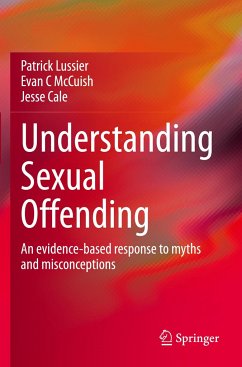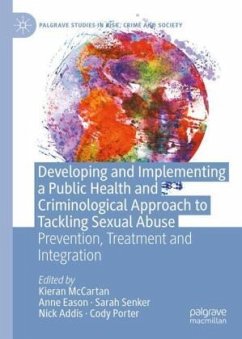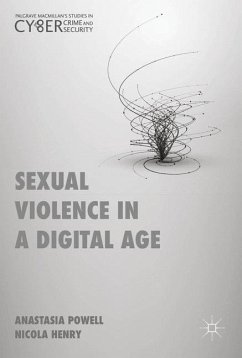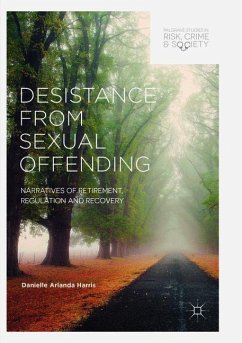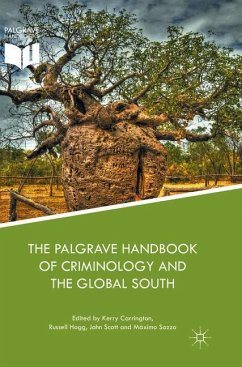
Understanding Sexual Offending
An evidence-based response to myths and misconceptions
Versandkostenfrei!
Versandfertig in 6-10 Tagen
76,99 €
inkl. MwSt.
Weitere Ausgaben:

PAYBACK Punkte
38 °P sammeln!
Addressing common myths and misconceptions about sexual offending, this book highlights the current state of scientific knowledge about the origins and the development of sexual offending. It offers a critical overview of current criminal justice policies and close to 100 years of research on how to best improve these policies through theoretically-grounded and methodologically-rigorous research.Focusing on proactive prevention-oriented strategies, this book revisits popular ideas about sexual offending through an evidence-based lens, addressing ideological and populist discourse that has led ...
Addressing common myths and misconceptions about sexual offending, this book highlights the current state of scientific knowledge about the origins and the development of sexual offending. It offers a critical overview of current criminal justice policies and close to 100 years of research on how to best improve these policies through theoretically-grounded and methodologically-rigorous research.
Focusing on proactive prevention-oriented strategies, this book revisits popular ideas about sexual offending through an evidence-based lens, addressing ideological and populist discourse that has led to ineffective and reactive policies. It advocates for a clearly defined concept of the phenomenon of sexual offending to underpin research and treatment. Uniquely, authors consider sexual offending from the viewpoint of criminal justice research and practitioners, incorporating the sociohistorical construction of sexual offending as a social problem, developmental life course research, and the impact of social policies. This book is a call for more proactive research on the origins and the development of sexual offending over the life course.
Focusing on proactive prevention-oriented strategies, this book revisits popular ideas about sexual offending through an evidence-based lens, addressing ideological and populist discourse that has led to ineffective and reactive policies. It advocates for a clearly defined concept of the phenomenon of sexual offending to underpin research and treatment. Uniquely, authors consider sexual offending from the viewpoint of criminal justice research and practitioners, incorporating the sociohistorical construction of sexual offending as a social problem, developmental life course research, and the impact of social policies. This book is a call for more proactive research on the origins and the development of sexual offending over the life course.





